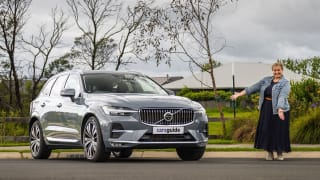
Which camper-trailer is right for you: soft-floor or hard-floor?

Life is all about choices and at several crucial junctures in your life you'll have to choose: Should I have that next beer? Should I wear that piano tie? Should I buy a soft-floor camper or a hard-floor camper? Fair enough, the camper choice is not such a serious one because your lifestyle and intended use will direct your choice but it's still an important call – and it's best to go into the decision-making process as well informed as you can possibly be.
In very general terms, the points of difference between soft-floor campers and hard-floor campers are rather straightforward: one has a soft floor, the other has a hard floor. But the differences extend far beyond those simplistic characteristics and include aspects of convenience, durability and engineering.
Both styles have their positives and negatives and neither format is a real deal-breaker – your choice will ultimately come down to personal preference and suitability to your planned usage – but how do you decide which one is right for you? Read on.
Soft-floor camper-trailers

The appeal of soft-floor campers lies in their durable but light-weight construction, their suitability for families and their price-tag, which can often be on the right side of cheap – the fact that they have fewer moving parts than a hard-floor model brings initial cost down.
Positives and negatives of a soft-floor can be boiled down to some salient points for each:

Pros: Soft-floor campers are generally cheaper, lighter, and are more suited to family-use than a hard-floor because they provide plenty of room for residents, and offer stacks of internal storage space.
Cons: A soft-floor camper takes longer to set up / pack up, the interior can be difficult to clean, and they generally offer fewer mod cons inside than hard-floor campers.
Hard-floor camper-trailers

A hard-floor camper appeals to those who want a swift set-up / pack-up time, so it's popular with couples and smaller families – or simply those who aren't inclined to spend any more time than they absolutely have to setting up their camper.
The roof of the camper-trailer is raised via a winch, similar to how a winder handle is used to raise a pop-top camper's roof, and then unfolds and extends to form a tent-like area, with the camper-trailer's roof having flipped to become the camper's hard floor when fully set up.
Watch the video (below) to better understand this winch-based process.
Pros: Hard-floor models are very easy to set up and pack up and, when fully locked out and standing, may be sturdier than soft-floor models, or at least perceived as such, especially in wild weather. They also may have more interior mod cons than a soft-floor camper.

Cons: That sturdiness means more weight, more moving parts and all at a higher cost than a soft-floor camper.










Comments